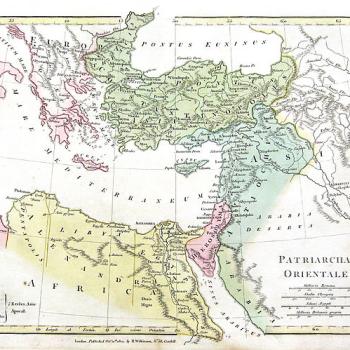What is Ash Wednesday?
Ash Wednesday is the first day of Lent in western Christianity. It begins a six-week season of penitence and spiritual renewal. The day is recognized in the Catholic Church and in many Protestant traditions; most encourage fasting. It is not, however, considered a Holy Day of Obligation in the Catholic Church, and it is not observed in most Orthodox traditions, which usually follow a different calendar and a different process for initiating Lent. (See below.)
Why the ashes?
In ancient times, grief and remorse were often visually depicted. Sometimes the sufferer wore sackcloth (a rough fabric, akin to burlap); sometimes sufferers would throw dust and ashes on their heads. The early church drew on these traditions in creating an opportunity for visual grief over our sins and as a reminder of the dust from which Adam was created—a reminder of our mortality and accountability to God.
Where do the ashes come from?
After Palm Sunday, the palms that have been used to remember the Lord's entrance into Jerusalem on a donkey are burned. The ashes from the palms are reserved for the next year's Ash Wednesday rites.
What happens in an Ash Wednesday service?
Ash Wednesday invites believers into the work of repentance. As such, it's a day for fasting and reflection. The service usually includes readings from Psalm 51 and from Jesus' teaching in the Sermon on the Mount about prayer, fasting, and almsgiving (Matthew 6:1-18). The congregants come forward at some point in the service to kneel and have the priest or pastor dip his finger into a bowl of ashes and mark the sign of the cross on each forehead with the words "Remember that you are dust, and to dust you shall return." The service may or may not conclude with the Liturgy of the Eucharist.
What is Shrove Tuesday?
The word "shrive" means to confess, and the church's traditions included a call to believers to confess their sins to their priest in the days before Lent began. Because Lent is a season of withdrawal from many temporal pleasures (either through fasting from foods or other practices), the preceding days were often full of indulgences in all the pleasures that the penitents were going to forego in the long weeks of Lent. Carnival, or Mardi Gras (literally, Fat Tuesday), is a raucous iteration of this feasting before the fast. A more temperate practice is Pancake Tuesday, a Shrove Tuesday practice of eating pancakes the night before Lent begins. This was one way of using up the eggs, milk, and oils or butter that were forbidden during Lent.
Who can get the ashes?
Anyone who comes to an Ash Wednesday service is invited into repentance and can receive the imposition of ashes. In the Catholic church, all are welcome since this is not a sacrament. Many Protestant churches also impose ashes, and welcome any who repent. Some Protestant churches have begun to take Ash Wednesday out to the streets, inviting passersby to receive ashes and consider the call to be reconciled with God.
Who does not and does not observe Ash Wednesday?
The decision to observe Lent and Ash Wednesday is largely a denominationally-driven choice. Many evangelical churches do not recognize liturgical seasons at all, and thus do not observe Lent or Ash Wednesday. Some, but not all, mainline Protestant traditions observe Lent. The choice is usually related to the denomination's interest in traditional liturgies versus contemporary service formats. Roman Catholics observe Lent and Ash Wednesday.
Orthodox traditions have a different approach to the season, and Ash Wednesday is not a part of it. Because they observe a Julian calendar, the dates of their celebrations also usually differ from the western church's celebrations, which are based on a Gregorian calendar. Orthodox precede the season of Lent with the Lenten Triodion, a four-Sunday preparatory season during which the rigorous Orthodox fast gradually builds. The last Sunday before Lent begins is called Forgiveness Sunday, and the next day—called Clean Monday—is the first day of Lent.
For more about the history, traditions, and practices of Lent, see the Lent FAQ here.
2/8/2016 5:00:00 AM





